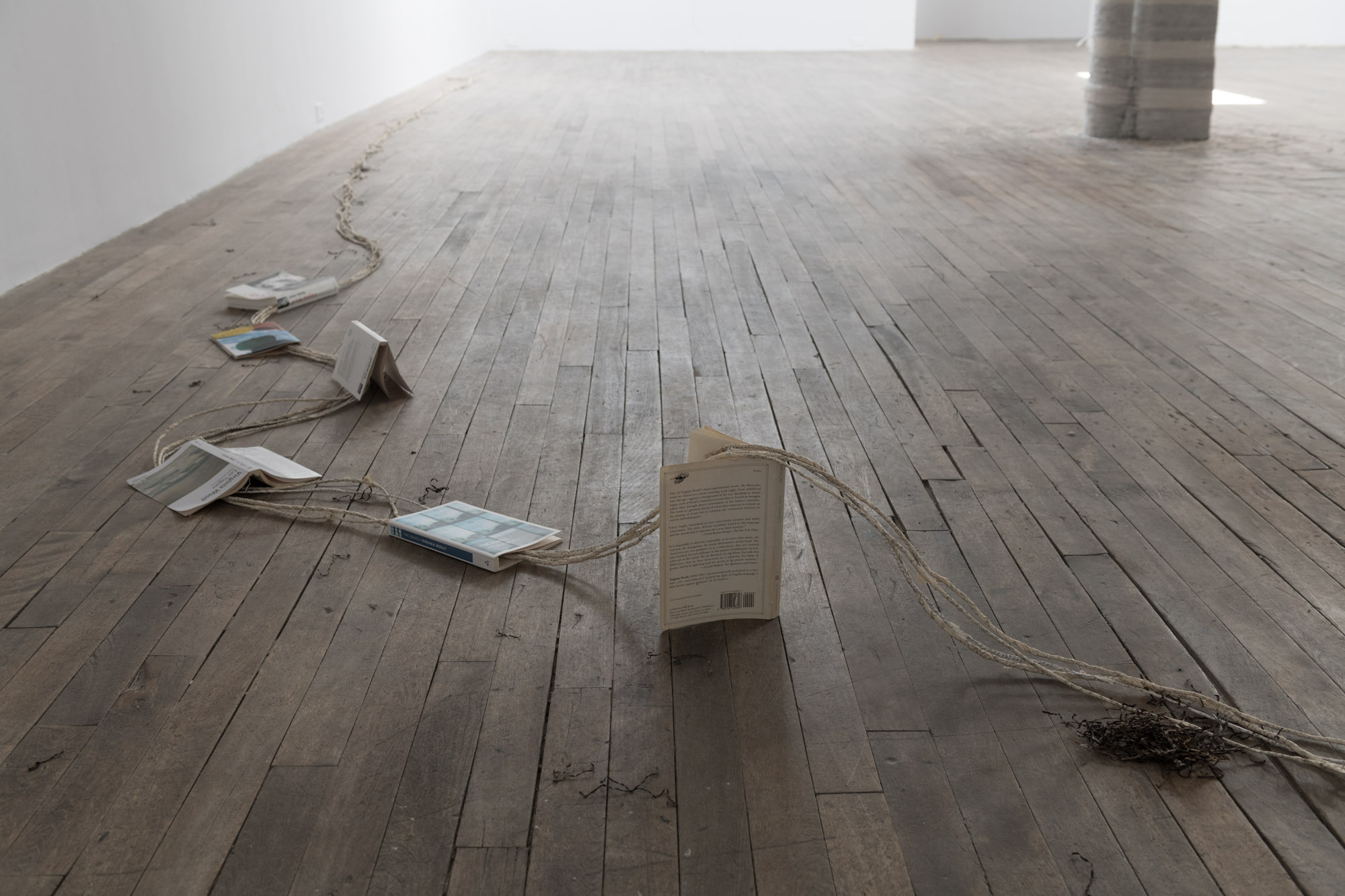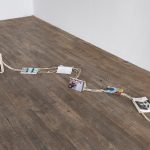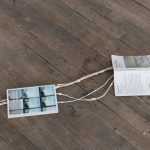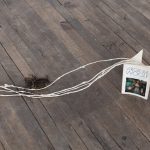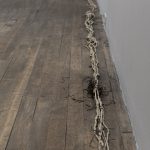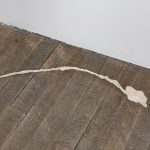Description
Six different editions of Virginia Woolf’s book The Waves spun into six continuous paper threads
Six éditions différentes du livre Les vagues de Virginia Woolf filées en six longs fils continus de papier
Statement
The Waves: Following the curve of the Sentence is one of a series of works imagining the world and words of Virginia Woolf’s best loved work, The Waves. All the pages of six different English and French editions of The Waves were spun into six continuous paper ropes. The ropes were placed together along the seashore and left to let the incoming tide tumble them together.
Six were chosen to represent the six soliloquies of intermingling voices of the characters in the book. Woolf called The Waves her “play-poem”. What would Virginia Woolf do today with a camera and a desire to play with text, the human body, the tide, the ocean and the land? This thought guided the making of the work during a two-year residency at the Université de Moncton, Moncton and Mount Allison University, Sackville, New Brunswick. Students, friends, the ocean and the land were active participants.
The Waves: Following the curve of the Sentence fait partie d’une série d’œuvres imaginant le monde et les mots de l’œuvre la plus aimée de Virginia Woolf, Les vagues. Toutes les pages de six éditions anglaises et françaises différentes de Les vagues ont été filées en six cordes de papier continues. Les cordes étaient placées ensemble au bord de la mer et laissées à la marée montante pour les faire tomber ensemble.
Six d’entre eux ont été choisis pour représenter les six soliloques des personnages du livre, dont les voix s’entremêlent. Woolf a qualifié Les vagues de « poème-théâtre ». Que ferait Virginia Woolf aujourd’hui avec une caméra et l’envie de jouer avec le texte, le corps humain, la mer, la marée et la terre? C’est cette question qui a guidé la création de l’œuvre pendant une résidence de deux ans à l’Université de Moncton (Moncton) et à Mount Allison University (Sackville, Nouveau-Brunswick). Des étudiant·e·s, des ami·e·s, l’océan et la terre ont été des participant·e·s à part entière.
Karen Trask, 2019, Traduction : Oboro, 2019
